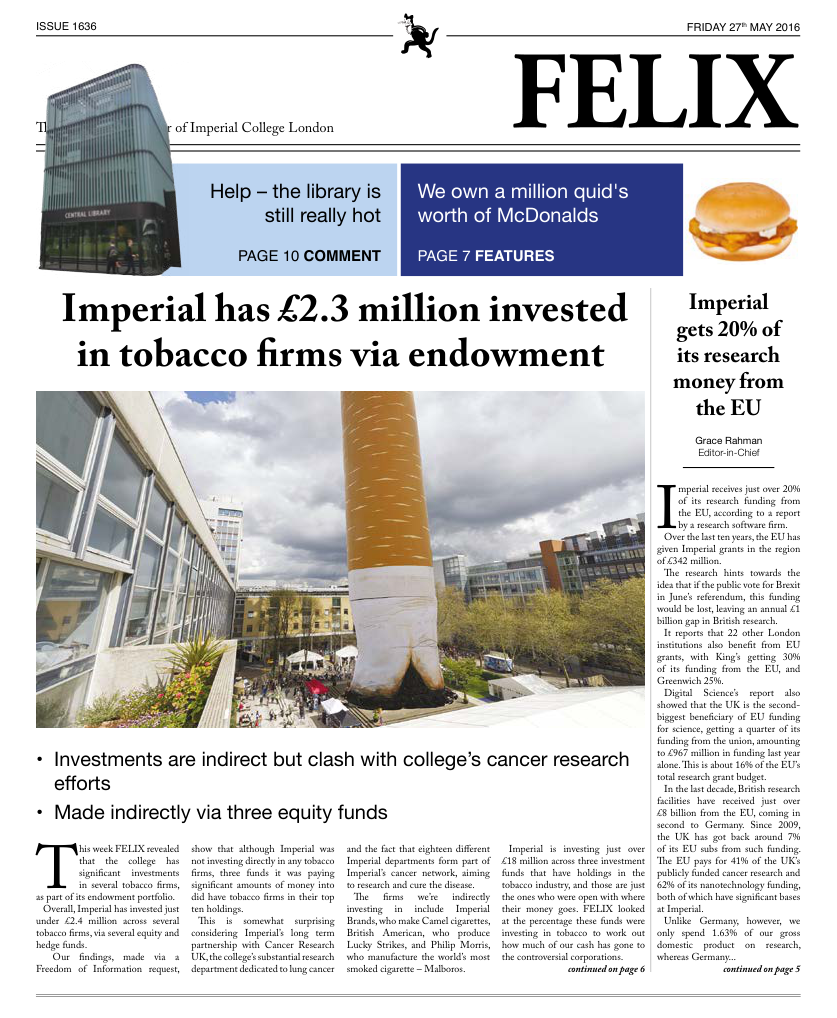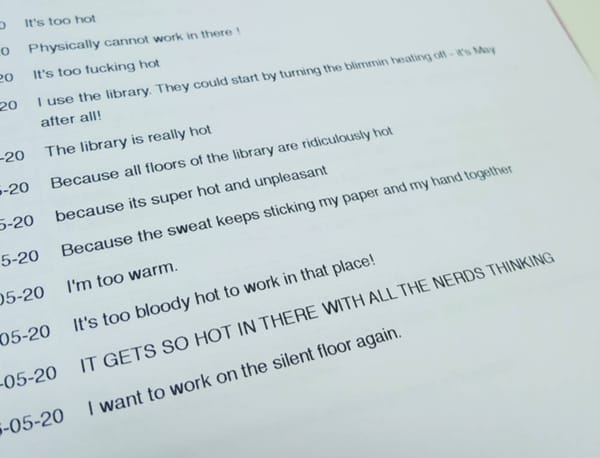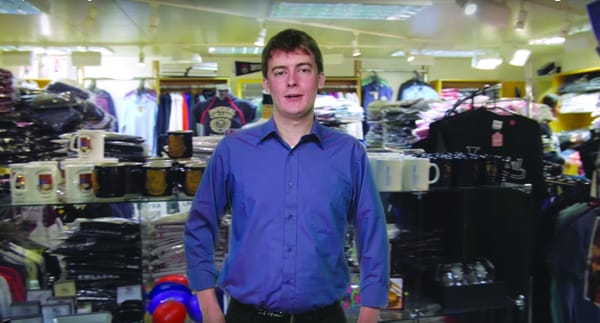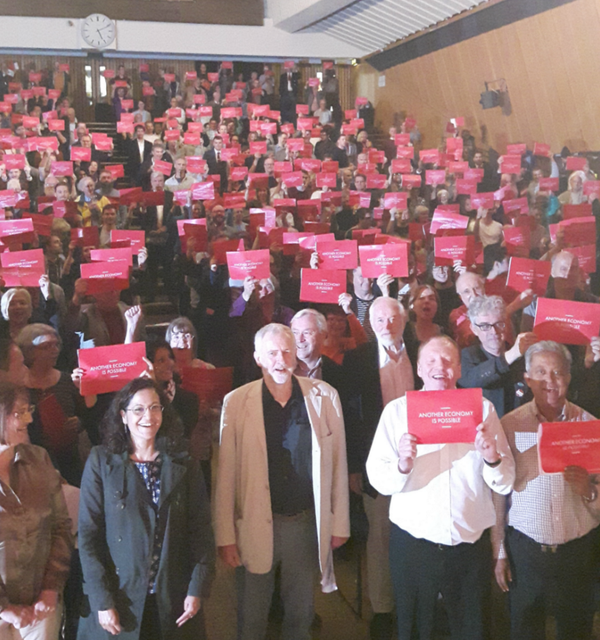David Nutt talks drugs, alcohol and research funding
He spoke as part of Imperial’s Mental Health Week
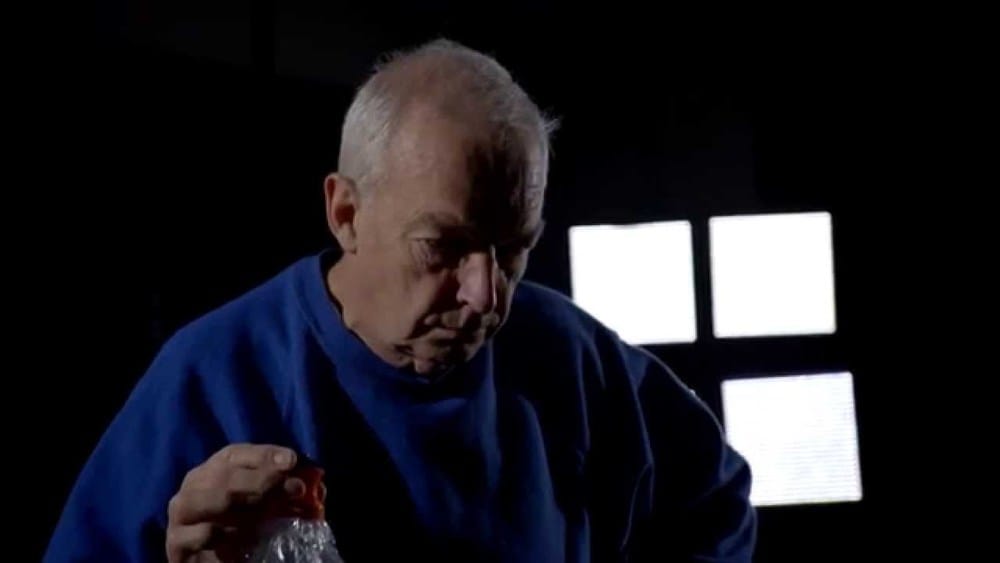
David Nutt, the chair of Imperial’s Centre for Neuropsychopharmacology, advocate for drug reform, and former chair of the Advisory Council on the Misuse of Drugs before he was sacked by the government in 2009 for saying alcohol was more harmful than illegal drugs, spoke to students and staff last week as part of Imperial’s mental health week.
His talk, which was the week’s keynote lecture, was entitled ‘Mental illness and illegal drugs: cause or cure?’ and covered everything from the death of Amy Winehouse to the political motives behind Richard Nixon’s war on narcotics.
Before he was asked to step down as the government’s chief advisor on drug policy, David Nutt said some pretty controversial things about drugs, the most famous being when he compared the number of annual deaths linked to horseriding (100) to those linked to ecstasy (30). Thereafter, his research-based statements clashed more and more with the government’s political stance before he was finally let go after publishing a paper ranking drugs, both legal and illegal, in order of harm. Alcohol and tobacco were above cannabis, LSD and ecstasy.
At his talk last Thursday, Professor Nutt discussed the dangers of alcohol and its toxic, yet accepted, danger to public health. He spoke solemnly on Amy Winehouse’s death, discussing the media’s portrayal of her heroin addiction, in comparison to the relapse into alcohol addiction that actually killed her. Despite being sober for six weeks, which the government defines as being ‘cured’, it was a bottle of vodka combined with an abstinence-induced low tolerance that killed her.
David Nutt pressed the danger of alcohol, telling the audience that it was now the leading cause of death in men in the UK today, and would soon be the same for women.
However, politically, alcohol is accepted and enjoyed by policy-makers and journalists, which he suggested was a motive behind the government’s preferential treatment of alcohol to other illegal drugs that do less harm overall.
Obviously, as an advocate for drug reform, David Nutt mourned the seemingly non-research based rhetoric behind the government’s current drug laws. Not only do these laws unfairly penalise people of colour, they make his research into using drugs like LSD, mushrooms and MDMA to treat a range of psychiatric disorders, all the harder to do. Getting research like this past ethics committees, and therefore securing funding, sound like a nightmare.
This is what led to David Nutt to collaborate with Channel 4 to make the Drugs Live programmes, which as well as giving us the amazing footage of Channel 4 newsreader Jon Snow stoned in an MRI machine, also gave Nutt and his co-researchers the funding to do a brain imaging study on patients on MDMA.
The new psychoactive substances law that comes into effect at the end of this month did not escape a mention, although Professor Nutt did not take a favourable stance on the legal highs, such as spice, that this new law is attempting to clamp down on. Spice is a synthetic cannabis that’s now widespread in prisons. Originally created as a medicine but deemed too toxic for use, it’s risen in popularity in the prison system since it is difficult to detect in both drug tests and by smell. However, it is by no means preferable to cannabis use, as it’s far more potent and, more importantly for public health, we know much less about it.
David Nutt’s pragmatism when it comes to drugs is obvious when he speaks. He speaks on the subject with all the authority and frustration that you might expect from someone who’s attempted to work with the government when it comes to drug policy. The evidence is obvious to him, and by the end of the talk it seems obvious to you too: wanting drastic new drug policy is no longer the standpoint of stoners and lib dems – it may well be the best way forward for public health in this country.

